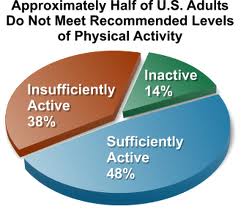You may resent your family and friends who insist that you need to get fit, but according to the study by a new sport psychology such pestering does work.
The study focused on modifiable social influences on motivation towards physical activity, rather than fixed factors used to predict health such as gender and ethnicity.
Social influence on motivation includes giving impetus, by nagging; supporting progress with emotional and moral support; logistical support, such as looking after the children for an hour; and making activity itself a social endeavor, such as going with friends.
The study from the University of Lincoln, is the first to address the range of social influences affecting levels of physical activity among people aged between 30 and 60.
It found through a series of interview with adults from across the UK that the least active people actually appreciated pestering by spouses and children.
The media and medical general practitioners appear to play a similar role, providing ‘alarm bells’ to shock those who were unfit or inactive about the potential consequences of a sedentary lifestyle.
‘The most common barriers to active lifestyles were work, long commutes and provision of facilities.
However, it became clear that if you know who to ask, it is also possible for your social network to help you be more active, for example, by going for a run with colleagues straight after work.
‘The good news is that the study suggests once you are active and healthy, you no longer need nagging.
Most importantly, however, the suggestion that ‘nagging is good’ should only be applied to getting healthy and active!’
Study author Dr. Richard Keegan, said: ‘The aim of this study was to help people examine their lifestyle as a whole and establish what the key factors are in influencing their activity levels.

